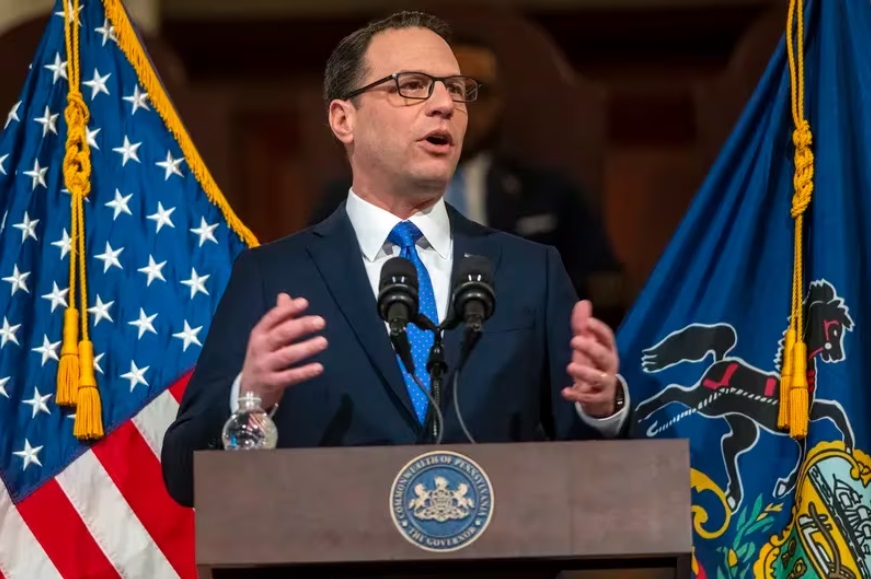Pennsylvania Governor Shapiro Advocates for Cannabis Legalization
LOS ANGELES- In a significant push towards cannabis reform, Pennsylvania Governor Josh Shapiro, a Democrat, has called upon lawmakers to fully legalize recreational cannabis, emphasizing the economic and social justice benefits such a move could bring to the state. During his annual state budget address, Shapiro’s proposal received immediate support from leading cannabis companies, reflecting the industry’s eagerness for market expansion.
Governor Shapiro took to X (formerly Twitter) to underscore the urgency of legalization, highlighting the potential for more than $250 million in annual revenue that Pennsylvania is missing out on by not participating in the regulated cannabis market. He pointed out the adverse effects of the current prohibition, such as fueling the black market and straining law enforcement resources, and stressed the need for Pennsylvania to align with neighboring states where adult-use cannabis is legal.
Shapiro outlined three critical conditions for the proposed legislation: creating well-paying jobs, ensuring responsible regulation and taxation of the industry, and incorporating a criminal justice component to address past injustices. “This is common sense. Let’s get it done,” Shapiro urged, reflecting a pragmatic approach to cannabis legalization.
The governor’s proposal comes as Pennsylvania finds itself increasingly isolated in its cannabis policy, surrounded by states like Delaware, Maryland, New Jersey, New York, and Ohio, which have legalized adult-use cannabis. Only West Virginia, among Pennsylvania’s neighbors, has yet to legalize recreational use, though it has a medical cannabis market.
Shapiro’s office has proposed a timeline for legalization, with possession and consumption becoming legal by July 1 and full adult-use sales commencing on January 1, 2025, according to Marijuana Moment. This move has been met with enthusiasm from cannabis companies and activist groups, who see it as a significant opportunity for economic growth and social reform.
The American Trade Association for Cannabis and Hemp (ATACH) and leading multistate operators like Green Thumb Industries and Jushi Holdings, which have substantial operations in Pennsylvania’s medical cannabis market, have expressed strong support for Shapiro’s stance. They anticipate that transitioning to adult-use sales will not only boost the state’s economy but also apply the successful regulatory framework of the medical program to the broader market.
Despite the optimistic outlook from the governor and industry stakeholders, the political path to legalization remains uncertain. With a closely divided legislature, where Republicans control the state Senate and Democrats hold a slim majority in the House, achieving consensus on cannabis legalization will require bipartisan support. As Pennsylvania navigates these legislative challenges, the debate over cannabis reform continues to highlight the broader national conversation around economic opportunity, criminal justice reform, and public health.



































